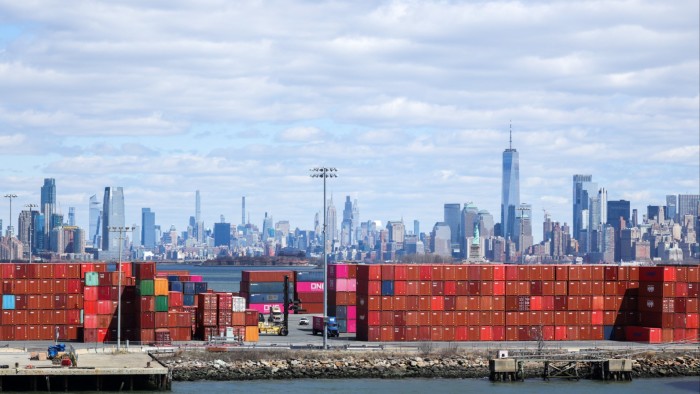Unlock the White House Watch newsletter for free
Your guide to what the 2024 US election means for Washington and the world
The writer is co-founder and co-chair of Oaktree Capital Management and author of ‘Mastering the Market Cycle: Getting the Odds on Your Side’
The events last week surrounding US President Donald Trump’s tariffs announcement were reminiscent of those of 2008 and the global financial crisis they produced. All norms have been overthrown. The way world trade has operated for the past 80 years may be of little relevance to the future. The impact on economies and the world at large is entirely unpredictable. There have been no large-scale trade wars in the modern era, which means that accepted economic theories are largely untested.
We have to accept that there’s no such thing as foreknowledge here. This means that if we insist on achieving certainty or even confidence before acting, we’ll be frozen into inaction. Or if we conclude we’ve reached decisions with certainty or confidence, we’ll probably be mistaken. We must make our decisions in the absence of those things.
But we also have to bear in mind that deciding not to act is not the opposite of acting; it’s an act in itself. The decision to leave a portfolio unchanged should be scrutinised as critically as a decision to make changes. The negative developments that make for the greatest bargains are terrifying, and they discourage buying. But when you’re surrounded by unfavourable developments, that’s the optimal time to step up.
Turning to the tariffs themselves, many of the goals the administration has set itself seem desirable. After all, shouldn’t the US government want to support American industry? If only it were that easy.
The problem is that in the real world, and especially in economics, there are second- and third-order consequences, and they are often significant and unpredictable. The potential consequences of Trump’s tariffs include retaliation by other countries, higher prices and maybe even a recession.
But let’s imagine for a moment that the tariffs are successful in supporting Trump’s stated aim of having more of the goods purchased in the US made in the US. We must ask if there is sufficient manufacturing capacity in the US to meet the demand. If not, how long would it take for the requisite new factories to be built? What will happen in the meantime? Are there enough workers to make these goods? Will it be possible to produce these goods in the US at the same price and quality as the equivalent imports?
While the answers to those questions are uncertain, one thing that is virtually guaranteed is that the prices of US-made goods will be higher than those of the imports Americans have become accustomed to buying. The result of higher prices is likely to be declining standards of living. Higher prices are also likely to result in lower unit sales, and thus in declining corporate profit margins, often a precursor to lay-offs and economic downturns.
Crucially, the impact of Trump’s move on tariffs extends to the international arena and goes well beyond economics. Global trade has had an enormous beneficial effect on the entire world since the end of second world war, contributing to a rising economic tide that lifted all boats. Some countries and some people did better than others, of course, but virtually everyone was better off.
Recommended
The main reason for this is comparative advantage. Every country has some things it produces better and/or cheaper, and others where the reverse is true. If every country makes the former and sells them to the rest of the world, and buys the latter from other countries, collective welfare is maximised through an increase in overall efficiency. If this is curtailed, all nations lose out.
How is the US Federal Reserve likely to respond if the tariff crisis continues? The threat of recession might call for accelerated rate cuts. But, then again, the threat of inflation might cause cuts that had been planned to be postponed. Again, nobody knows how this ends.
And what about the financial markets? In the past few days there’s been a huge stock market decline. As always, the key question surrounds the appropriateness of the reaction: has it been just right, excessive or inadequate? It’s even harder than usual to answer that question. On the one hand, if the tariffs remain as announced and retaliation leads to an all-out trade war, the consequences could be truly dire. But on the other hand, cooler heads (and a highly negative political and stock market reaction) could prevail, causing the tariffs to be rolled back to less harmful levels and resulting in a win for free trade. We shall see.



